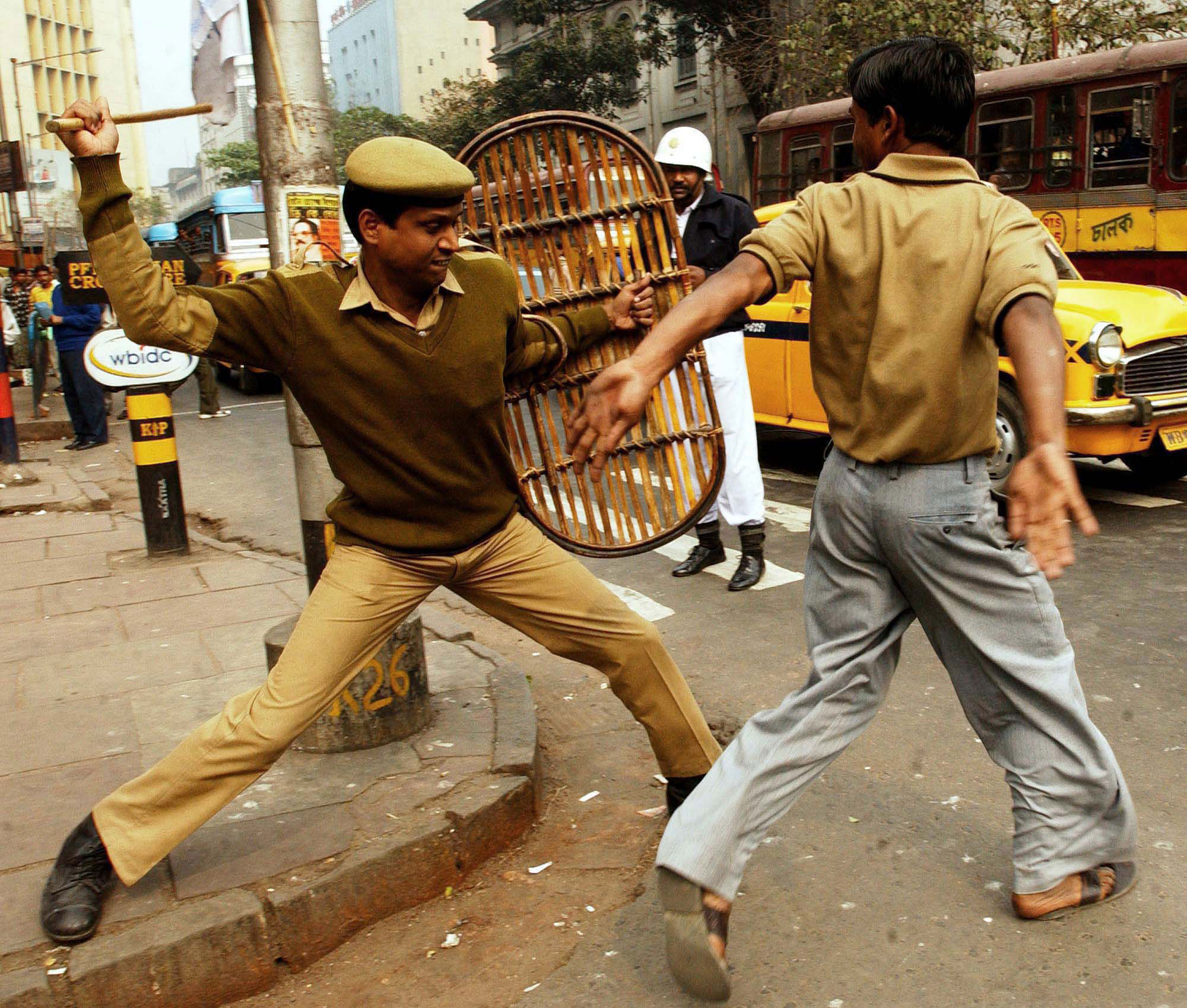Police reforms and the intervention of civil society

‘Equality before the law’ is one of the imperatives for a healthy democracy and a just and fair functioning of police force is essential to achieve that goal.
Extreme poverty and illiteracy apart, feudal set ups in south Asian countries allow police to lord over their subjects. Police in most of the poor and developing countries are not service oriented, leading to a total disconnect between the police and civil society.
The process of police reforms in India has been locked in controversy for several decades despite eight reports on police reforms by National Police Commission (set up in 1979) and an array of individuals and organisations calling for ‘a root and branch change’ in the police functioning, heavily loaded with a colonial mindset even after 62 years of independence. A poorly trained and poorly paid constabulary at the bottom of the police-power pyramid is not geared to modern policing.
Political will to carry out police reforms is completely absent in successive governments, which are unwilling to disturb a carefully set politico-police-criminal interests. With the political and bureaucratic blessings, the status quo has continued with police continuing to be a handmaiden of the ruling class. The stark reality is that the police in India are still governed by the 1861 Police Code framed after the 1857 revolt!
The judicial ‘oversight’ has recently sought to break the unholy nexus blocking the police reforms but with very moderate success. The Sept 22, 2006, supreme court directives (Prakash Singh and others vs Union of India and others) has made it mandatory for the Centre and state governments to take steps to implement 7-point reforms agenda. “Most of the states have circumvented the reforms and there is a strong resistance to implement court directions”, says Prakash Singh, former DGP, whose petition revived the debate on police reforms.
The Commonwealth Human Rights Initiative (CHRI), a non-governmental organisation, recently organised a two-day round table conference on ‘Police reforms in South Asia: Role of Civil Society,’ in New Delhi, where deliberations focused on ways of bringing civil society in closer and friendlier interaction with police for better policing.
“The stalling of reforms has given a feeling to the people that the police would get reformed only with radical cataclysm,” said director of CHRI Maja Daruwala, who advocated increasing police-civil engagement.
Sanjay Patil, a consultant with CHRI, felt it was critical for CSOs to find ways to ensure that the community’s interests were taken into account by having a regular and constructive engagement with the police.
Positive attitude
Attending the roundtable, DGP (Kerala) Jacob Punnoose accepted that external oversight of the police would improve performance rather than hinder it. “I welcome external oversight because it will ensure that we do our job better,” he said.
Interestingly, some of the successful examples of civil society initiatives were cited by the delegates from Pakistan and Bangladesh, countries known for ruthless policing, worse than India. Sharfuddin Memon, chairman, citizens-police liaison committee (CPLC) said CPLC came into existence in 1989 when kidnapping was rampant in Karachi. The concept was to involve people from the business community who were the main targets of these crimes.
Today with the amendment to police rule, CPLC has been institutionalised with a full-fledged secretariat, equipped with modern gadgets catering to the needs of law enforcement agencies and citizens alike. Memon said even in rape cases, victims of the family trust CPLC members and seek guidance to liaise with the police.
B Sandhya, IPS, elucidated on the community policing project — Janamaithri Suraksha — functioning in Kerala, which seeks responsible participation of citizens in crime prevention at the level of local community.
Another more effective initiative to create public-police trust was cited by ‘Naripokko’, a women’s activist organisation in Bangladesh that presented its experience of working with the police. Project coordinator of the organisation Rita Das Roy said violence against women had been a priority of Naripokkho, which was formed in 1983.
She said the organisation had worked with the survivors of acid attacks since 1995. “Our advocacy on the problem of acid violence in Bangladesh has resulted in a number of civil society and international initiatives to support acid survivors leading to treatment and re-constructive surgery.”
The attempt to develop civilian-police partnership has the potential of doing the ‘reform’ without waiting for the government to make the first move. The idea of lay visitors to police stations and jails, community policing and frequent civilian-police interactions can have a reformist impact on policing, at least in the metropolises. Whether the concept could get a toe-hold in the impoverished and illiterate mofusil civil society is a matter of larger debate.
Deccan Herald is on WhatsApp Channels| Join now for Breaking News & Editor's Picks